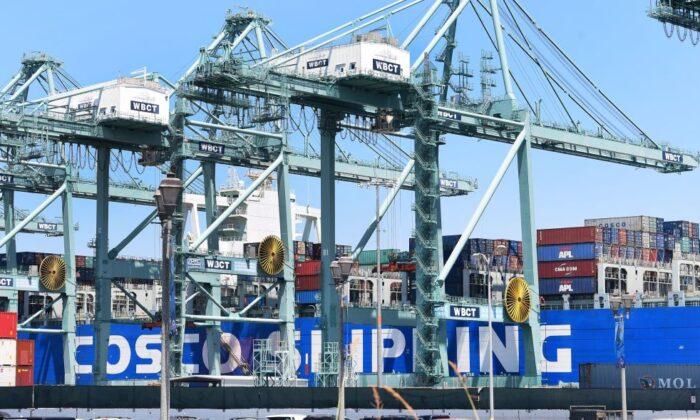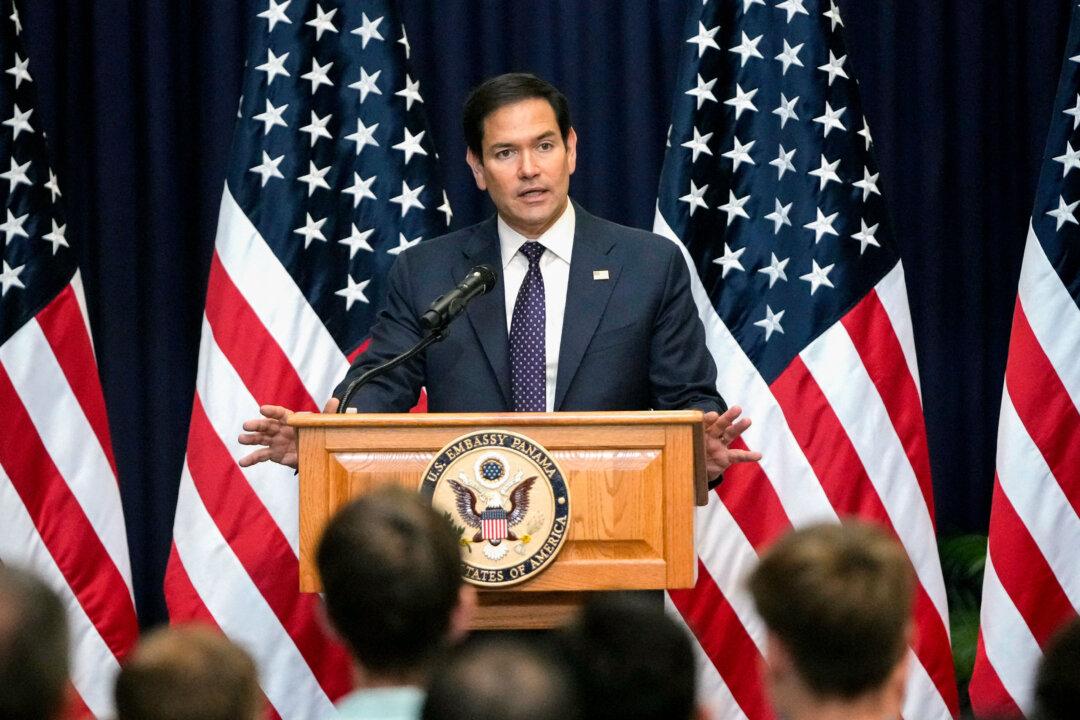Beijing has the ambitious foreign trade policy to lay its footprints throughout oceans and coastal areas worldwide.
U.S. experts recently sounded the alarm about the risks such ambitions posed to U.S. national security, at a congressional hearing.
The hearing scrutinized China’s Maritime Silk Road (MSR), the maritime component of China’s One Belt, One Road (OBOR) initiative, which Beijing rolled out in 2013. Beijing aims to establish geopolitical clout by financing infrastructure projects throughout Southeast Asia, Africa, Europe, and Latin America.
Maloney also said China has been building up its shipbuilding industry: five major Chinese shipping firms controlled 18 percent of the global volume of container shipping in 2015.
Meanwhile, Maloney said U.S. domestic commercial shipping capacity and the U.S. flag fleet in foreign trades have eroded to their lowest points since before World War II.
As a result, Maloney said, the U.S. military’s readiness and transport capacity have declined.
Ports
Meanwhile, China has sought to establish control over the world’s largest ports.The state-owned China Ocean Shipping Company (COSCO) alone has equity investments in 18 ports in 13 countries, including in the United States. Meanwhile, China Merchants Port Holdings, a subsidiary of the state-owned China Merchants Group, has investments in 23 ports in 16 countries.
Such investments also have security implications. “Chinese SOEs, like COSCO and China Merchants, are intimately tied to the Chinese state, and their positions as port operators could allow them to collect intelligence on the movement and location of USN [U.S. Navy] ships and other assets,” Becker stated at a June congressional hearing.
Becker also raised concerns about the Middle East, particularly the United Arab Emirates (UAE), where the U.S. Navy stations about 5,000 military personnel, some of them at the Fujairah Terminals.
Due to increased Chinese investment in the UAE, Becker said the Chinese regime could take advantage of “established connections between COSCO Shipping and UAE port authority personnel to obtain information on the movement of personnel, supplies, and material related to USN personnel stationed in the country.”
5G
China’s maritime presence also comes with the security concerns of using Chinese tech giant Huawei’s 5G telecommunication equipment.“The presence of Huawei 5G equipment in Chinese-operated foreign ports would present new risks due to the inherent security vulnerabilities associated with Chinese telecom vendors,” they said.
They also warned that given Huawei products’ bad history of having security flaws, maritime infrastructure reliant on Chinese 5G services could be exploited by other hackers.
Currently, the U.S. administration has placed Huawei and more than 100 of its related entities on an “entity list,” banning them from doing business with U.S. firms unless they apply for a special license.
Sbragia and Tuck also noted that China’s control over major ports around the world would give the Chinese regime access to shipping data that could give them an unfair advantage over other countries, posing a threat “to the competitiveness of global markets and maritime economies.”





